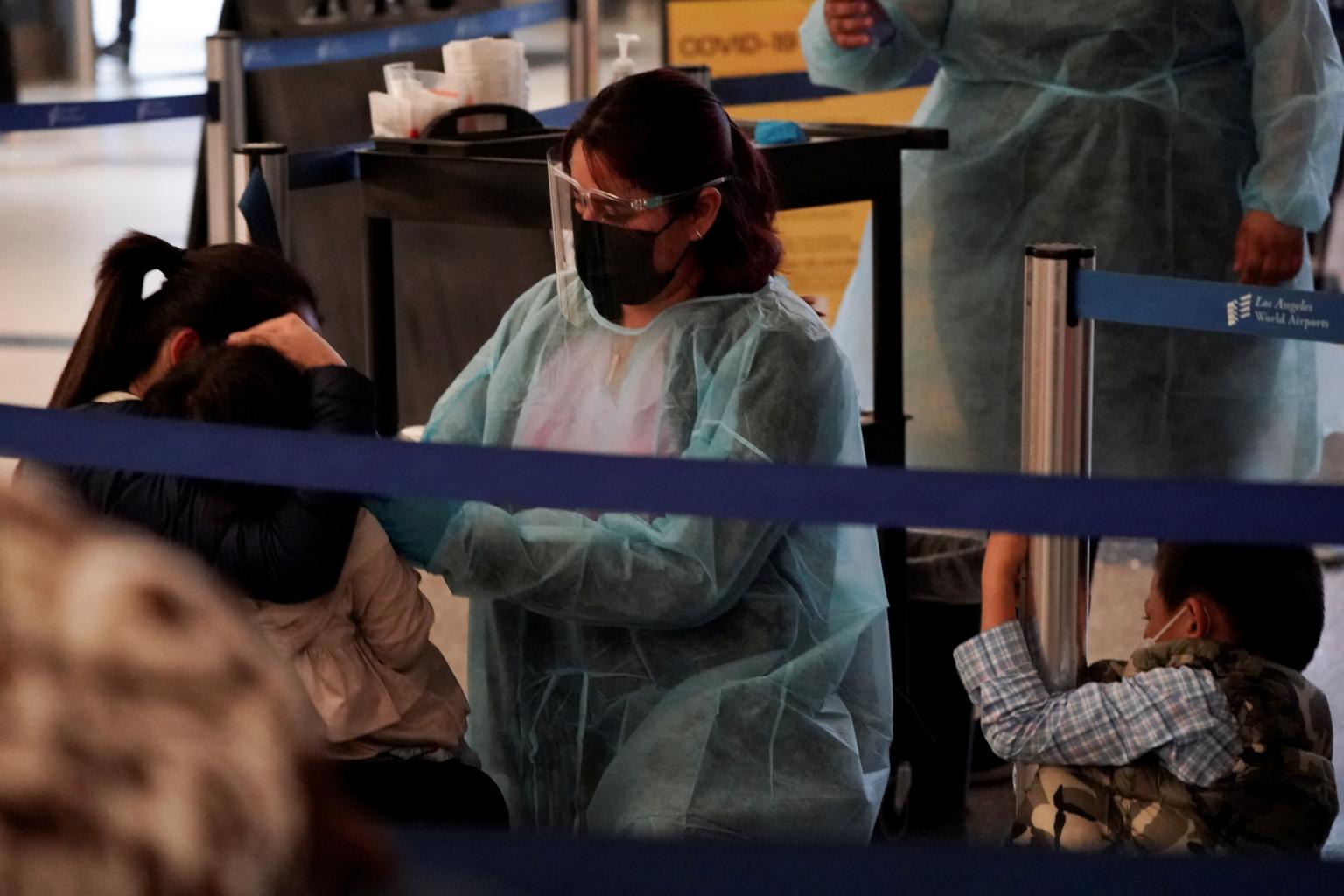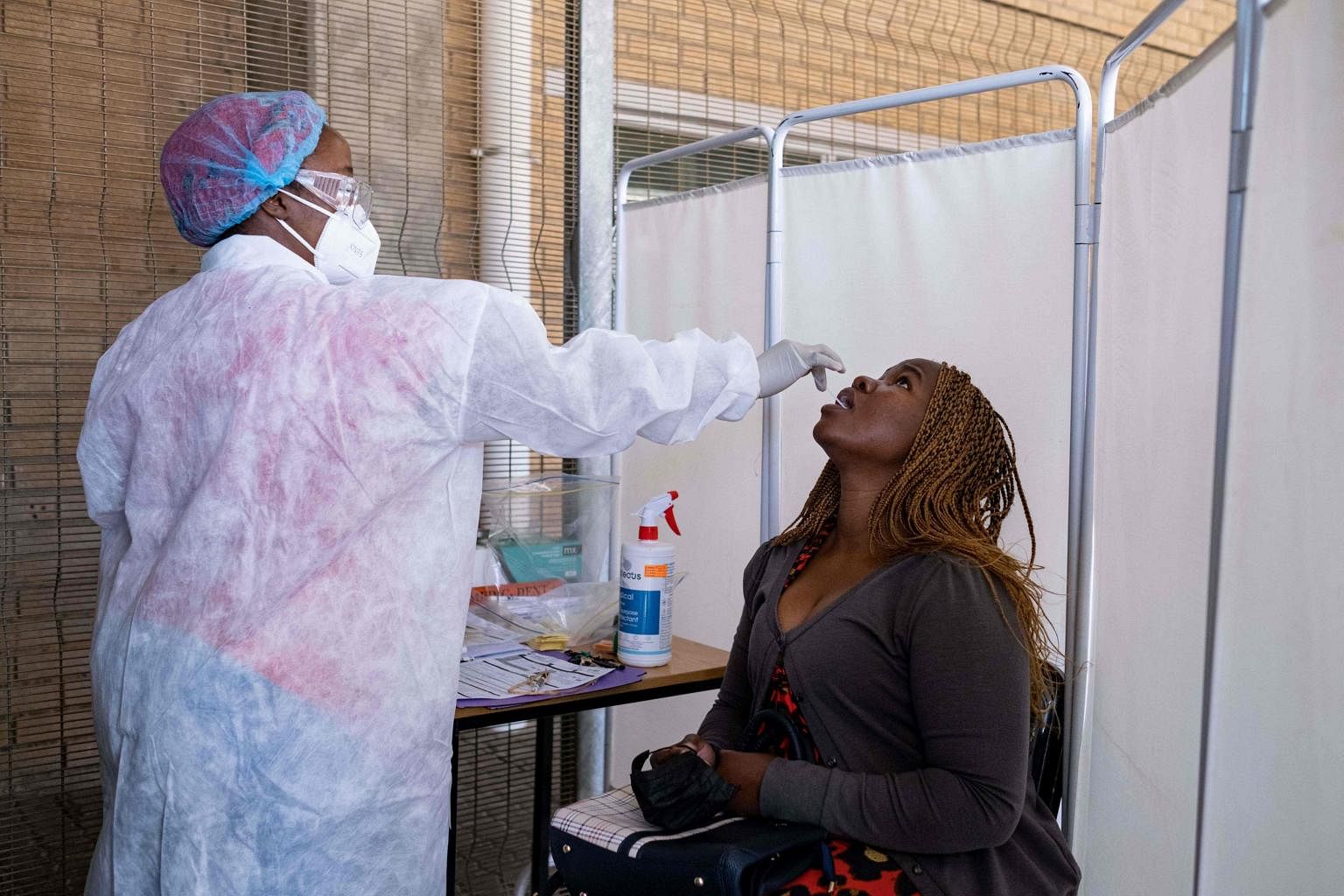What are the unique symptoms of Omicron?
Sign up now: Get ST's newsletters delivered to your inbox

While most polymerase chain reaction and rapid antigen tests can detect Covid-19, the results do not indicate which variant has infected the person.
PHOTO: REUTERS
WASHINGTON (NYTIMES) - With cases of Omicron rising throughout the United States, Americans are scrambling to distinguish the symptoms of this new variant from those of other coronavirus variants, including Delta.
Most polymerase chain reaction (PCR) and rapid antigen tests can detect Covid-19 - the Food and Drug Administration has noted there are only a few tests that do not - but results do not indicate to the users which variant they are infected with, leaving people to guess.
Some symptom differences have emerged from preliminary data, but experts are not certain they are meaningful.
Data released last week from South Africa's largest private health insurer, for instance, suggest that South Africans with Omicron often develop a scratchy or sore throat along with nasal congestion, a dry cough and muscle pain, especially low back pain.
But these are all symptoms of Delta and of the original coronavirus too, said Dr Ashley Z. Ritter, a nurse practitioner at the University of Pennsylvania. Given that Omicron has been circulating for only about three weeks, she added: "It's still too early to say that there's any difference in symptoms between the Omicron variant and previous versions."
It's likely that the symptoms of Omicron will resemble Delta's more than they differ from them.
"There's probably a huge amount of overlap between Omicron and the prior variants, because they are essentially doing the same thing," said Dr Otto Yang, an infectious disease physician at the University of California, Los Angeles, David Geffen School of Medicine. "If there are differences, they're probably fairly subtle."
One possible difference is that Omicron may be less likely than earlier variants to cause a loss of taste and smell.
Research suggests that 48 per cent of patients with the original Sars-CoV-2 strain reported loss of smell, and 41 per cent reported loss of taste.
But an analysis of a small Omicron outbreak among vaccinated people in the Netherlands found that only 23 per cent of patients reported loss of taste, and only 12 per cent reported loss of smell. It is unclear, though, whether these differences are because of Omicron or some other factor, such as vaccination status.
Indeed, many Covid-19 symptoms vary depending on a person's vaccination status.
Dr Maya Clark-Cutaia, an assistant professor at the New York University Meyers College of Nursing who has been following up with Covid-19 patients throughout the pandemic, said that vaccinated patients with Delta or the original coronavirus tend to present with headache, congestion, sinus pressure and sinus pain, while unvaccinated patients are more likely to have shortness of breath and cough, along with flu-like symptoms.
With Omicron, Dr Clark-Cutaia said patients she has talked to in Pennsylvania are presenting with symptoms similar to those of Delta.
Vaccinated Omicron patients complain of headaches, body aches and fever - "like a really bad cold", she said. Unvaccinated people with Omicron have the same shortness of breath, cough and flu-like symptoms she saw among unvaccinated people with Delta and the original coronavirus.
One other difference between Omicron and other variants is that Omicron seems to have a shorter incubation time - after a person is exposed, it takes as few as three days for him to develop symptoms, become contagious and test positive, compared with four to six days with Delta and the original coronavirus, said Dr Waleed Javaid, director of infection prevention and control at Mount Sinai Downtown in New York City.
That could be because the variant's mutations help it attach to and go inside cells, he added.
What about the claim that Omicron infections are milder than Delta infections?
According to last week's data from South Africa, after controlling for vaccination status, the risk of hospitalisation for adults diagnosed with Omicron was 29 per cent lower there than in the first wave of the pandemic, and hospitalised South African Covid-19 patients have been less likely to be admitted to intensive care units.

But South Africa's observations may not apply to the US and other countries.
Most South Africans have already been infected with Covid-19, and the median age in South Africa is 27 - both of which might cause the variant to have milder effects there than in the US, where the median age is 38, Dr Yang said.
The data also showed that, although children tended to have mild symptoms, they were 20 per cent more likely to be hospitalised during the Omicron wave compared with the first wave.
"There are people who get severe illness from Omicron," Dr Javaid said. Sometimes, early mild symptoms can develop into serious symptoms later, so it's crucial that people with cold or flu-like symptoms be tested and stay home.
"It is still a coronavirus. We're still in a pandemic," he said.


